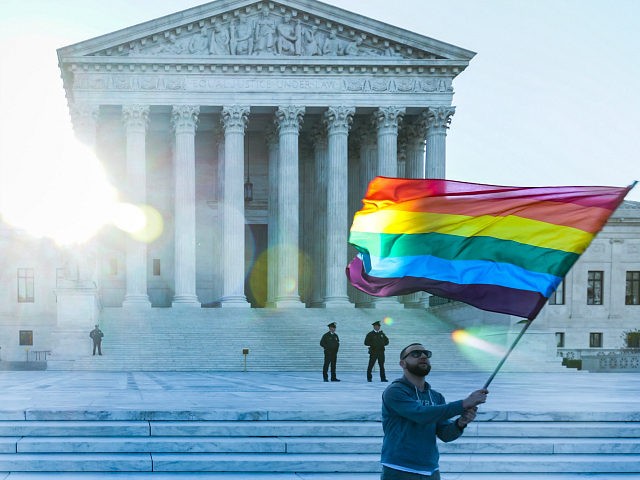The Supreme Court’s reinterpretation of the Civil Rights Act’s prohibition against employment discrimination on the basis of sex — to now include sexual orientation and “gender identity” — will lead to lawsuits targeting religious and parochial schools for the hiring practices, warned Hans von Spakovsky, manager of the Heritage Foundation’s Election Law Reform Initiative and a senior legal fellow of the Meese Center for Legal and Judicial Studies.
Von Spakovsky discussed several of the Supreme Court’s recent rulings on Tuesday’s edition of SiriusXM’s Breitbart News Daily with host Alex Marlow.
The Supreme Court redefined “sex” in the context of a prohibited basis of employment discrimination, making it unlawful to make personnel decisions wholly or partly based on a person’s sexual orientation or “gender identity.”
“It does feel like one or two people testing this [ruling] out could really make a huge headache that could be crippling for businesses,” said Marlow. “I think that’s what we’re gonna see. What do you think?”
Von Spakovsky predicted the orchestration of scenarios by political organizations within which lawsuits could be filed against religious and parochial schools to compel compliance with the Supreme Court’s decision.
“I think one of the first big targets will be religious and parochial schools all over the country,” von Spakovsky forecasted. “I think the organizations that file these kinds of lawsuits will come up with test cases, or they’ll ask people to apply for jobs as teachers at parochial schools where they are supposed to impart religious faith and religious values of that particular religion — whatever religion runs those schools — to those students.”
Von Spakovky added, “I think they will have people, for example, who are transsexual apply for those jobs, and when the churches refuse to hire them, they’re going to sue and say, ‘You’re violating the Civil Rights Act of 1964.’ The churches will be put in the position of having to defend themselves and say they should — because of their religious beliefs and First Amendment rights — have an exemption to it, but will that happen? We don’t know.”
LISTEN:
The Supreme Court’s reinterpretation of the Civil Rights Act amounted to “legislation,” determined von Spakovsky, noting that the court’s ruling usurped the legislative role of Congress. The court’s conflation of “gender identity” with sex is incompatible with the intentions of legislators who composed and passed the Civil Rights Act in 1964, he added.
“This should have been a simple case,” stated von Spakovsky. “The Civil Rights Act of 1964 basically says that when it comes to employment, you can’t discriminate against somebody on the basis of race, color, religion, sex, or national origin. Sex was put into the law in ’64 for one reason and one and one reason only: because there was rampant employment discrimination against women at that time.”
Von Spakovsky noted that “gender identity” is a neologism coined years after 1964.
“As [Justice Samuel] Alito said, there’s not a single member of Congress who in 1964 could have even imagined that the word ‘sex’ would be used to apply not to women being discriminated against, but to sexual orientation or gender identity, which wasn’t even an identifiable concept in 1964,” concluded von Spakovsky.
Carrie Severino, president of the Judicial Crisis Network, similarly warned that the Supreme Court’s reinterpretation of the Civil Rights Act opens the door for further left-wing lawfare against religious organizations.
Breitbart News Daily broadcasts live on SiriusXM Patriot 125 weekdays from 6:00 a.m. to 9:00 a.m. Eastern.
Follow Robert Kraychik on Twitter.

COMMENTS
Please let us know if you're having issues with commenting.